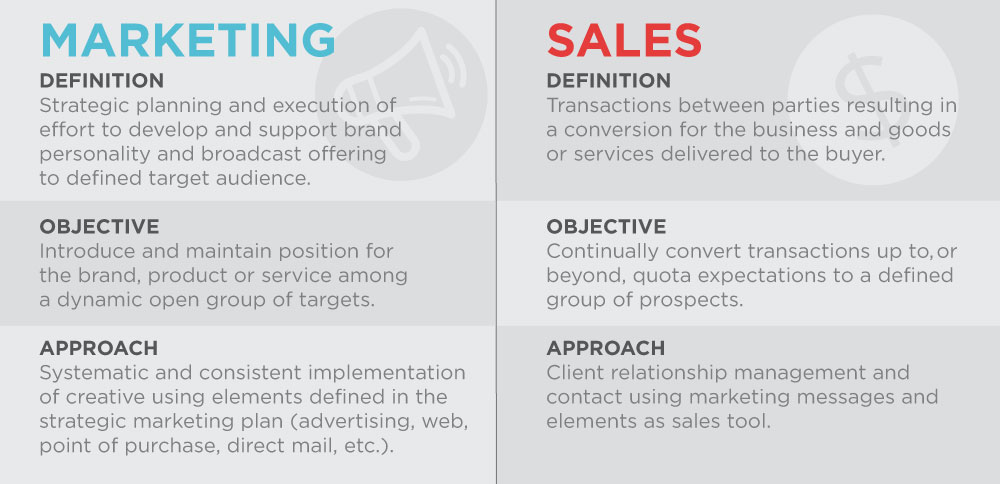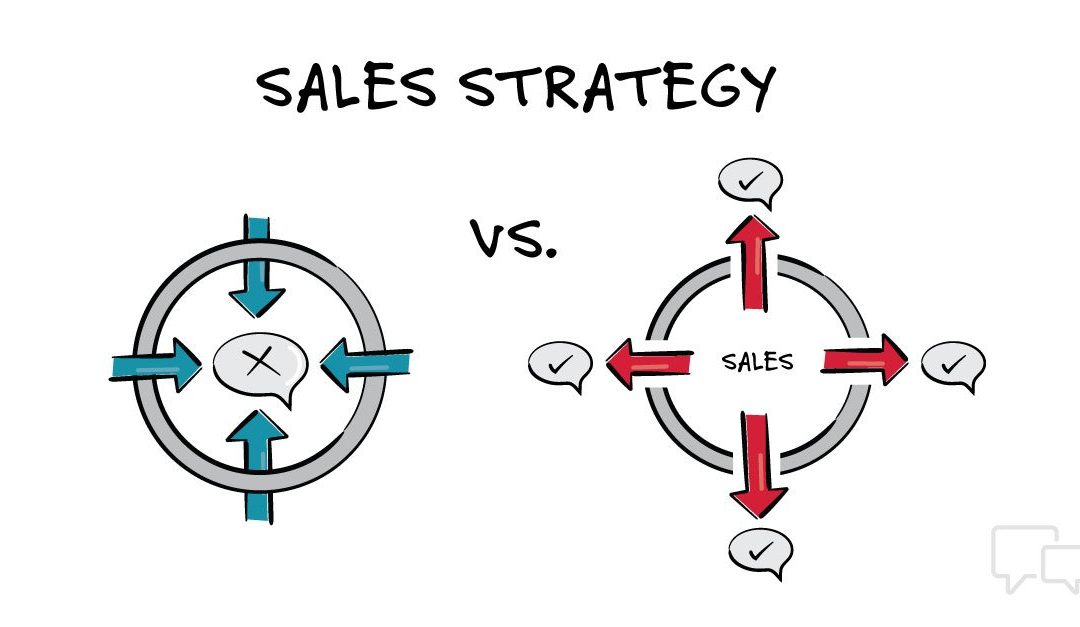Marketing Definition:
Marketing refers to the set of activities that a business undertakes to promote its products or services to potential customers. It involves researching and analyzing the target audience, developing a unique value proposition, creating a brand identity, designing promotional materials, and executing campaigns to generate leads and build relationships with prospects.
Marketing activities can include traditional methods like print, TV, radio, and billboard ads, as well as digital channels like email, social media, search engine optimization (SEO), and pay-per-click (PPC) advertising. The ultimate goal of marketing is to create brand awareness, generate interest, and build trust with potential customers.

Sales Definition:
Sales refer to the process of converting leads into paying customers by presenting the product or service in a way that meets the customer’s needs and solves their problems. Salespeople are responsible for making sales calls, scheduling appointments, presenting proposals, negotiating deals, and closing sales.
Sales can take place in various forms, including face-to-face meetings, phone calls, emails, and online chat. The ultimate goal of sales is to generate revenue and achieve the company’s financial targets.
Differences between Sales and Marketing:
The primary difference between sales and marketing is their focus. While marketing focuses on creating brand awareness and generating interest, sales focus on closing deals and generating revenue. Marketing is a long-term strategy that builds brand equity and establishes the company’s presence in the market. Sales, on the other hand, are a short-term strategy that generates revenue by closing deals.
Marketing involves a broader set of activities than sales. Marketing encompasses everything from research and analysis to product development, branding, and advertising. Sales, on the other hand, are limited to the activities involved in closing deals.
Complementarity of Sales and Marketing:
Sales and marketing complement each other, and both are essential for a company’s success. Marketing activities generate leads and build brand awareness, while sales activities convert those leads into paying customers. Without marketing, salespeople would have no leads to work with, and without sales, marketing would have no way to measure its effectiveness.
In conclusion, sales and marketing are two distinct but interconnected functions of any business. Marketing focuses on creating brand awareness and generating interest, while sales focus on closing deals and generating revenue. Both are critical for a company’s success, and they must work together to achieve the company’s objectives.

